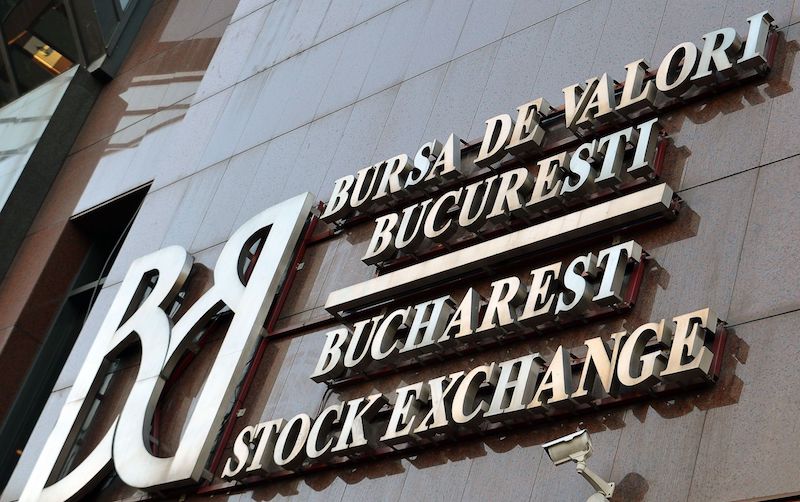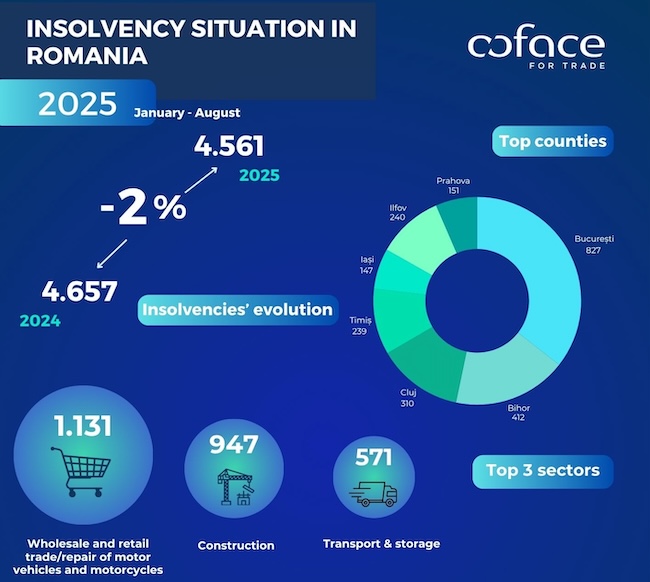PWC Study: The BSE indexes have surpassed the performance of Government bonds over the past 7 years

Also, the dividend yields on the local market are at high levels compared to those of companies listed on more developed markets, with the average dividend yield for BET constituents of 8% in 2016 (highest yield in the world at that moment), 7.9% in 2017 and 7% in 2018.
Following the market corrections in the last quarter of 2018, the valuation multiples of the companies listed on the Bucharest Stock Exchange have decreased significantly and are now at a five years low for the financial services, oil & gas and healthcare sectors, according to the PwC study.
“Current stock prices compared to company earning are at attractive levels for investors, but one should also keep in mind that due to perceived legislative and fiscal uncertainty, the Romanian capital market is seen as one of the riskiest capital markets in the region, according to our analysis, after the Greek one, and this means that investors are expecting higher returns for placing their money in local equity”, stated Sorin Petre, Partner, Valuation and Economics Leader, PwC Romania.
Average price to earnings ratio (P/E) decreased by 19,6% in 2018 across all analysed industrial sectors compared to 2017, with the lowest P/E levels in Oil&Gas and Financial Services (7,5 and 7,6 respectively), while the highest levels were registered in the consumer (14,5) and electricity sectors (14,3). P/E ratios are significantly smaller on the BSE compared to the pre-crisis levels registered in 2007, thus reflecting a more conservative approach of investors when it comes to the valuation of equity and, potentially, undervalued stocks.
The Oil&Gas and Healthcare sectors show the lowest P/E volatility, as they are generally perceived by investors as generating a more stable financial performance, whereas the electricity sector of companies listed on the BSE has registered the highest price to earnings volatility.
The long term analysis has also shown that the market capitalization for companies operating in the Oil & Gas and Industrial sectors was least impacted by the economic cycles, whereas companies operating in the Healthcare and Consumer sectors were the most affected by adverse economic changes, being more connected to the evolution of the local market.
“If we look at equity market capitalization, we see that Romania is punching significantly below its economic weight, with market capitalization compared to GDP of only 16%, whereas Croatia, Greece, the Czech Republic, Bulgaria or Hungary all register higher market capitalization relative to GDP (35% - Croatia, 29% - Greece, 24% - Bulgaria, 20% - Czech Republic and 19% - Hungary). Therefore, there is a big potential for development and a major step forward would be obtaining the upgrade of the Bucharest Stock Exchange from the “Frontier Market” to “Emerging Market” status. The biggest obstacle to this upgrade seems to be the liquidity and unfortunately, recent tax and legislative changes have not helped in improving the perception about the local stock exchange. These have had a negative impact on the market, decreasing the valuations of the listed companies and increasing the risk premiums”, explained Ileana Guțu, Senior Manager, Valuations and Economics, PwC Romania.
Last year saw only one IPO on the BSE, that of Purcari Wineries, which brought more than 71 mln. EUR on the capital market, but there was a significant decrease in the IPO activity compared to 2017, when there where 4 IPOs, including the massive Digi Communications IPO.
”Though Romania has registered impressive economic growth in the last few years, with GDP per capita expressed at PPP increasing to 60,7% of EU 28 GDP average, thus reflecting an economic convergence process, the local stock market has not capitalized in the same manner this strong economic growth. The Government could accelerate the development of the local market by restarting the process of IPOs of the major state-owned enterprises, but most importantly, by maintaining a stable and predictable tax and legislative framework”, concluded Sorin Petre.
The study presents the valuation multiples trend for 80 listed companies on the Bucharest Stock Exchange covering the period between 2007 and 2018 with a focus on the consumer, oil & gas, financial services, healthcare, industrial, materials and electricity sectors. We have also performed an analysis of valuation multiples trend based on 112 closed transactions between 2007 and 2018 for which robust financial data were readily available.
All financial data used in the present study was sourced from S&P Capital IQ, Mergermarket, ISI Emerging Markets and Bloomberg. PwC has not verified, validated or audited the data and cannot therefore give any undertaking as to the accuracy of the study results. The timeframe selected for the present analysis included a 12-year period, from January 2007 to December 2018 and encompassed the performance of the selected sectors over the economic business cycles.






